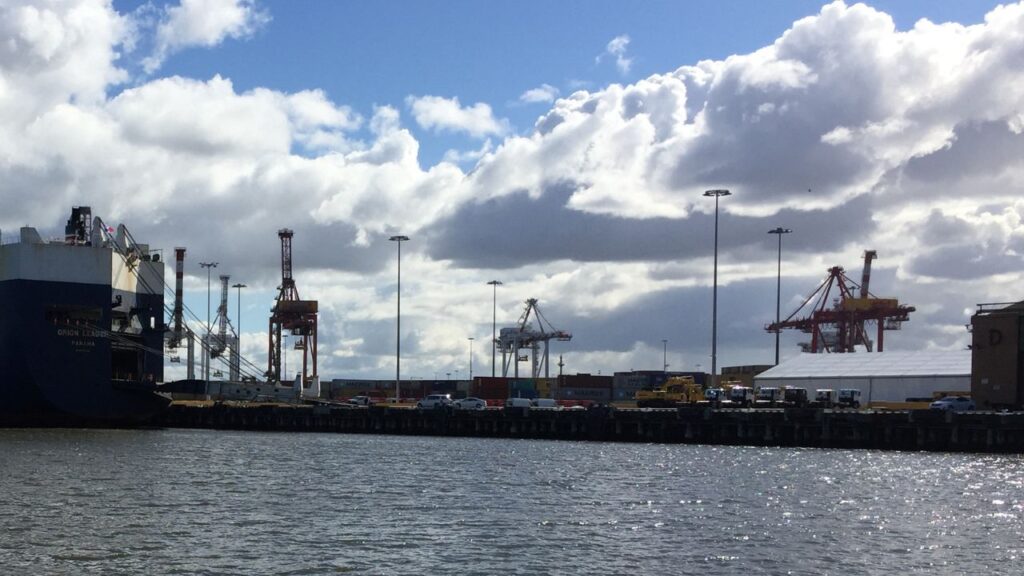How Global Logistics Impacts Global Trade
Global logistics is the backbone of global trade, playing a vital role in the seamless movement of goods across borders.
In today’s fast-paced and interconnected world, the importance of logistics cannot be overstated.
So how does global logistics impact global trade?
A well-coordinated logistics system ensures that products reach customers efficiently, driving customer-focused strategies and fostering satisfaction.
If things go wrong, profit suffers.
By optimizing transportation, warehousing and distribution processes, businesses can reduce costs and increase their profit margins.
Efficient logistics minimizes delays and disruptions, allowing companies to meet customer demands promptly and maintain a competitive edge in the market.
Moreover, logistics is essential for ensuring compliance with international trade regulations.
Each country has its own set of rules and standards governing the import and export of goods.
A robust logistics system navigates these complexities, ensuring that shipments adhere to customs requirements, tariffs, and other legal obligations.
Compliance not only prevents costly fines and penalties but also builds trust with trading partners and customers.
Safety is another crucial aspect of logistics in global trade. The transportation of goods, especially hazardous materials, requires strict adherence to safety protocols.
Proper packaging, handling, and transportation practices mitigate risks and protect both the products and the people involved in the supply chain.
Ensuring safety at every step of the logistics process is paramount for maintaining the integrity of goods and preventing accidents.
The implementation of technology has revolutionized the logistics industry. Advanced tracking systems, automated warehouses, and real-time data analytics have enhanced visibility and efficiency.
What is the impact of technology?
Technology enables businesses to monitor their supply chains in real-time, make data-driven decisions, and swiftly respond to any disruptions.
This integration of technology streamlines operations, reduces errors, and enhances overall supply chain performance.
In conclusion, global logistics is the linchpin of global trade, encompassing customer-focused strategies, profitability, compliance, safety, and the implementation of technology.
An efficient logistics system not only ensures the smooth flow of goods but also drives business success in the competitive world of global trade.
Like to know more? Please contact Timothy Hipworth here.
Social Media Post
GLOBAL LOGISTICS // How does global logistics impact global trade? 🤔
A well-coordinated logistics system ensures that products reach customers efficiently, driving customer-focused strategies and fostering satisfaction.
If things go wrong, profit suffers. 🚛
By optimizing transportation, warehousing and distribution processes, businesses can reduce costs and increase their profit margins. 📈
Efficient logistics minimizes delays and disruptions, allowing companies to meet customer demands promptly and maintain a competitive edge in the market.
Moreover, logistics is essential for ensuring compliance with international trade regulations.
🌐Each country has its own set of rules and standards governing the import and export of goods.
A robust logistics system navigates these complexities, ensuring that shipments adhere to customs requirements, tariffs, and other legal obligations.
Compliance not only prevents costly fines and penalties but also builds trust with trading partners and customers.
Safety is another crucial aspect of logistics in global trade. The transportation of goods, especially hazardous materials, requires strict adherence to safety protocols.
Proper packaging, handling, and transportation practices mitigate risks and protect both the products and the people involved in the supply chain.
🦺 Ensuring safety at every step of the logistics process is paramount for maintaining the integrity of goods and preventing accidents.
The implementation of technology has revolutionized the logistics industry.
Advanced tracking systems, automated warehouses, and real-time data analytics have enhanced visibility and efficiency.
➡️ Like to know more? Read the full piece at https://timothyhipworth.com/how-global-logistics-impacts-global-trade/
#timothyhipworth #globallogistics #globaltrade
Shared Online Archive.org LinkedIn Profile
